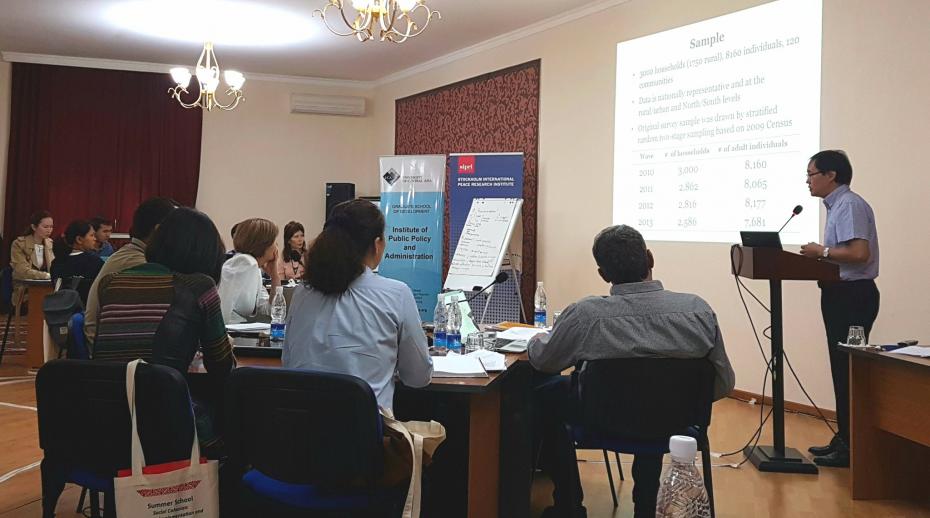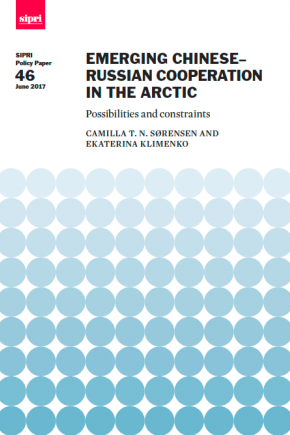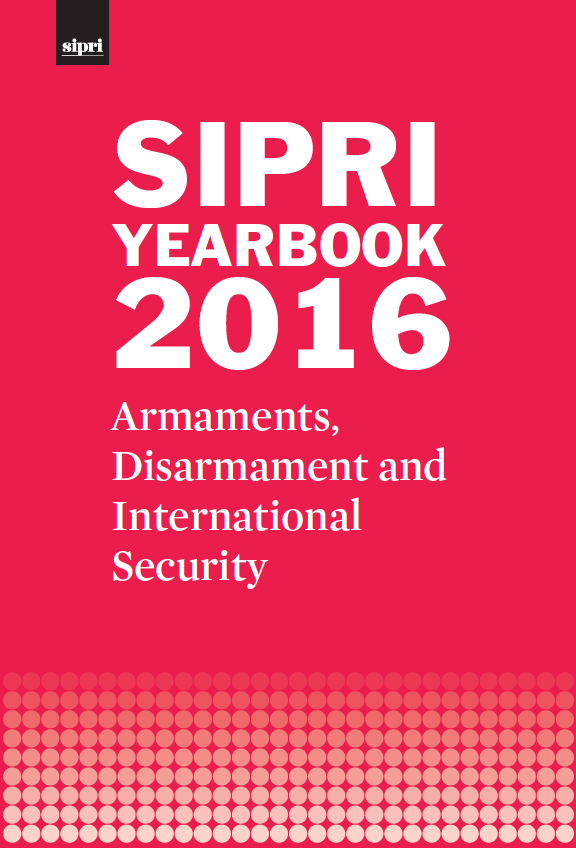 |
| |
| SIPRI concludes summer school on social cohesion |
| SIPRI and the University of Central Asia concluded a week-long summer school on social cohesion held in Kyrgyzstan. Bringing together experts from four Central Asian countries, the summer school aimed to build capacity among regional academics and practitioners, particularly in the area of data and empirical methods. |
| Read more |
|
|
|
| COMMENTARY |
 |
| Cultural diversity for dialogue and development |
| Given today’s conflicts, political uncertainties and support for nationalism, it is important to be reminded of the benefits that diversity brings to development. This blog post explores old and new research on the links between ethnicity, culture and development. |
| Read the blog post |
|
|
| |
 |
| Eurasian Economic Union policies and practice in Kyrgyzstan |
| Kyrgyzstan’s experience as a member of the Eurasian Economic Union (EAEU) from mid 2015 to late 2016 has been largely frustrating, although any analysis is complicated by the regional economic and political shocks during this time. |
| Read the backgrounder |
|
|
| |
 |
| The African Union’s road to financial independence: Pragmatic or ideological? |
| In this guest blog post, Maria Osula discusses the African Union's ambitious self-financing programme and how this relates to ownership of peacebuilding inititatives on the continent. |
| Read the guest blog post |
|
|
|
| UPCOMING EVENTS |
| |
| 13–15 September 2017 |
| 2017 Stockholm Security Conference |
| SIPRI and the Swedish Riksdag will host the second Stockholm Security Conference, this year with a focus on ‘Secure Cities in an Insecure World’. The conference will gather leading representatives from the political, academic and business worlds, as well as civil society, to explore today's security challenges and opportunities for cities. They will discuss how current global trends and strains—climate change, migration, war, terrorism, crime and technological innovation—affect people in cities, and how can cities respond. |
| Read more | Watch short interviews from the 2016 Conference |
|
|
| RECENT EVENTS |
| |
| 29 May 2017 |
| SIPRI welcomes Jan Eliasson as Chair of Governing Board |
| SIPRI held an event thanking Ambassador Sven-Olof Petersson for his work as Chair of SIPRI's Governing Board. The event was also an opportunity to welcome Ambassador Jan Eliasson as the new Chair, who formally took up his position on 1 June 2017. |
| Watch Jan Eliasson talk about global security trends |
|
| |
| |
| 17–18 May 2017 |
| Internal Compliance Programme workshop |
| SIPRI and the US Department of State hosted a two-day Internal Compliance Programme (ICP) roundtable workshop, focusing on sector- and actor-specific challenges and good practices regarding internal compliance with strategic trade controls. |
| Read more |
|
|
| STAFF NEWS |
| |
|
|
|
| PUBLICATIONS |
 |
| Emerging Chinese–Russian cooperation in the Arctic |
| Engaging China with regard to Arctic development has become more and more appealing for Russia, while China is keen to further strengthen its engagement and role in the Arctic. At first glance, Chinese–Russian cooperation on developing energy resources and sea routes in the Russian Arctic looks like an objective that China and Russia could work on closely together and have complementary interests. This report asks the question: is it that simple? |
| Read the publication |
|
|
| |
 |
| Phosphate fertilizers as a proliferation-relevant source of uranium |
| A historical and often overlooked source of uranium for weapons and nuclear power is the extraction of uranium from phosphate fertilizers. In this way, uranium can be acquired legally but in an undeclared fashion, invisible to international commerce and export controls. The fertilizer industry is not normally seen as an industry that enables nuclear weapon acquisition through the use of dual-use equipment, but past events and current international trade practices clearly demonstrate that better-informed export controls and end-user processes are required. |
| Read the publication |
|
|
| |
 |
| SIPRI Yearbook 2016 |
The 47th edition of the SIPRI Yearbook is a compendium of data and analysis in the areas of security and conflicts; military spending and armaments; and non-proliferation, arms control and disarmament. It covers developments during 2015, including:
- aspects of the conflicts in the Middle East;
- the role and impact of international sanctions on Iran;
- the ongoing peace process in Mali; and
- the implementation of the Sustainable Development Goals.
|
| Browse the contents page | Read the summary (pdf) |
|
|
| |
|
|